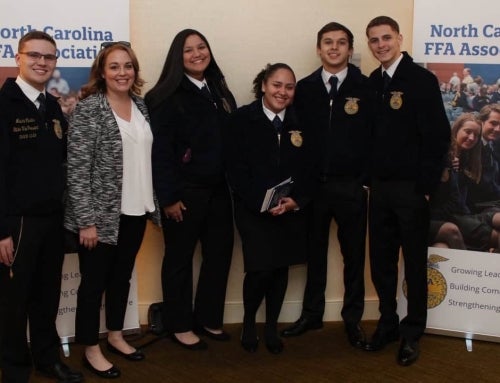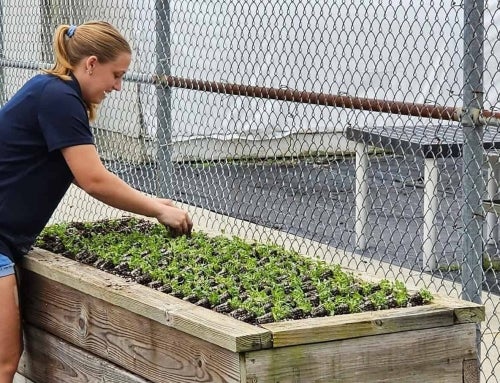When residents of Toulon, Ill., want to buy groceries, processed foods are available at gas stations and dollar stores, but the nearest supermarket is up to 45 minutes away.
“We’re in a rural area so it’s not easy to get deliveries of the produce that we need and keep it affordable,” explains Stark County FFA member Sarah Kraklow.
It wasn’t until Kraklow and other FFA members watched The Food Deserts of Memphis: Inside America’s Hunger Capital, a film about urban food deserts, that they realized it was a problem in their area also.
The U.S. Department of Agriculture defines a food desert as a low-income area with 500 or more residents who live more than 10 miles from the nearest supermarket.
Stark County is a food desert; fruits, vegetables, dairy and protein are almost impossible to find locally. FFA members, seeking to find a solution, evaluated ideas to address the issue. The options included farmers markets, grocery chains, and installing produce stands at gas stations. In addition to identifying opportunities, students were realistic about the challenges.
“We’re a small community and a con to having a grocery store is that there might not be enough business for the store to stay open or enough workers in Stark County to take the jobs,” says Stark County FFA member Cole Kinsella.
Chelsey Stotler, also a Stark County FFA member, admits that cost would also be a factor. Buying fresh produce at a local market would be more expensive than driving longer distances to a big-box store.
Although it was a school project, the local community applauded the effort.
“We posted about the project on social media and we had several shares … so we know our voice got out there,” says Taylor Wilkinson, agriculture education teacher and FFA advisor. “We even heard from a local businessman that he was impressed that the youth were understanding the problems that exist in our community.”
Stark County FFA members don’t have any plans to open the grocery store, but they do want to take a bite out of hunger in their community.
Starting next fall, the chapter will operate a Snack 360 program that will offer healthy snack alternatives to schoolchildren in the district. The chapter is also constructing a greenhouse on the school grounds and exploring ideas for growing fresh produce for the community.
“It’s important for youth to understand what’s going on in the community, to understand what we need to do to fix it and to get involved,” says FFA member Katelynn Allen.












